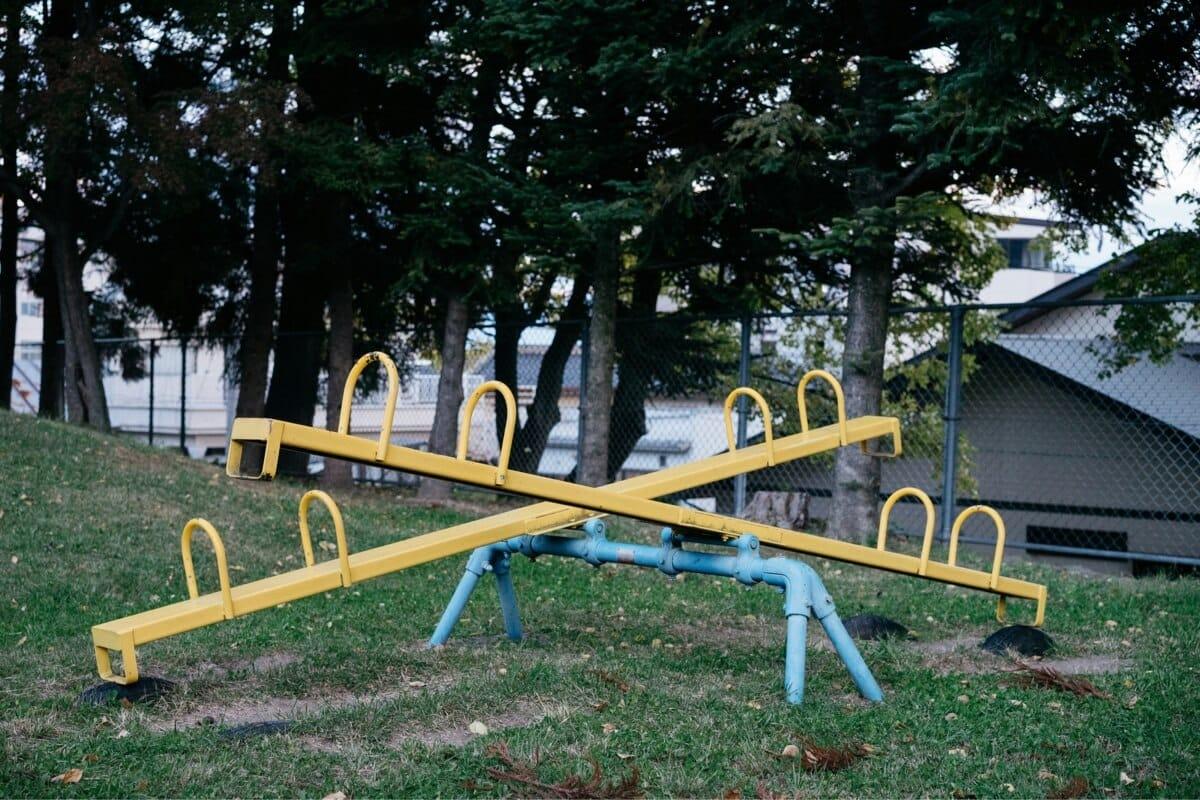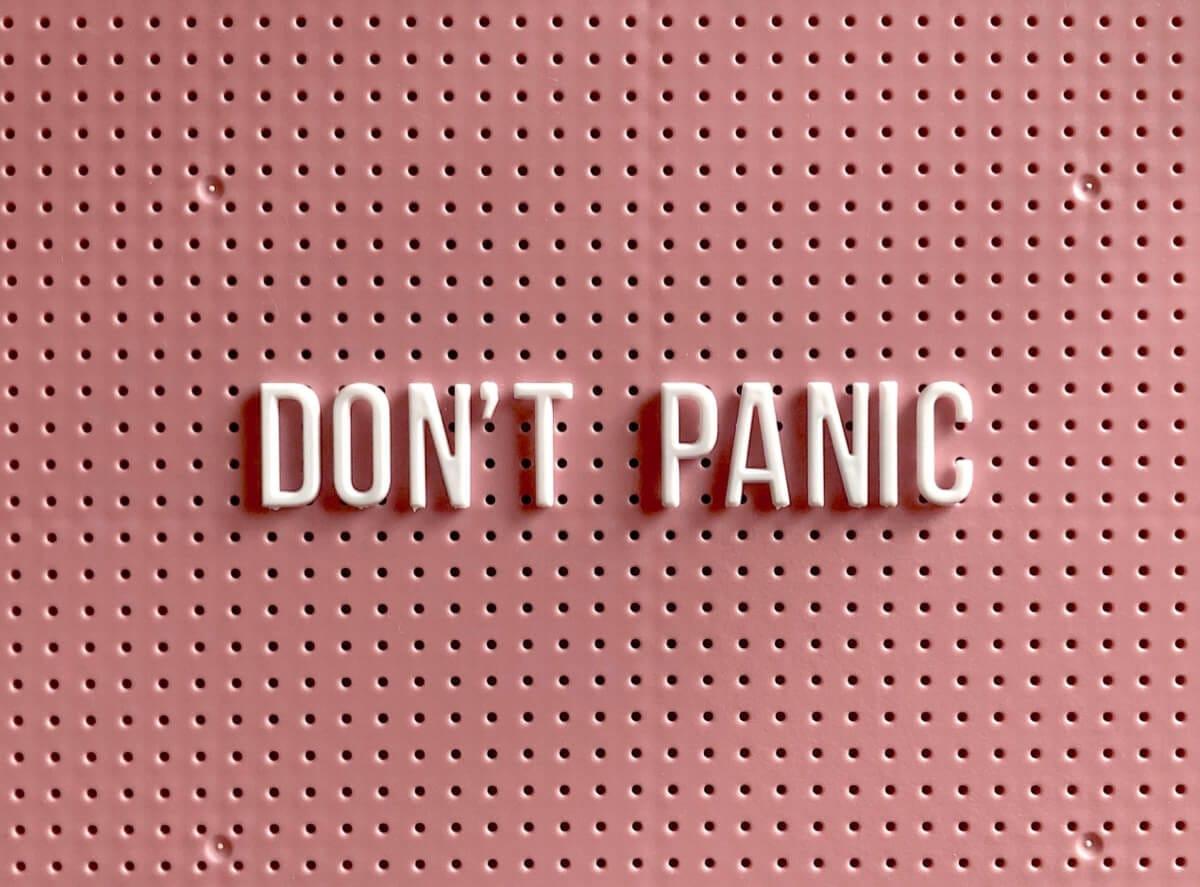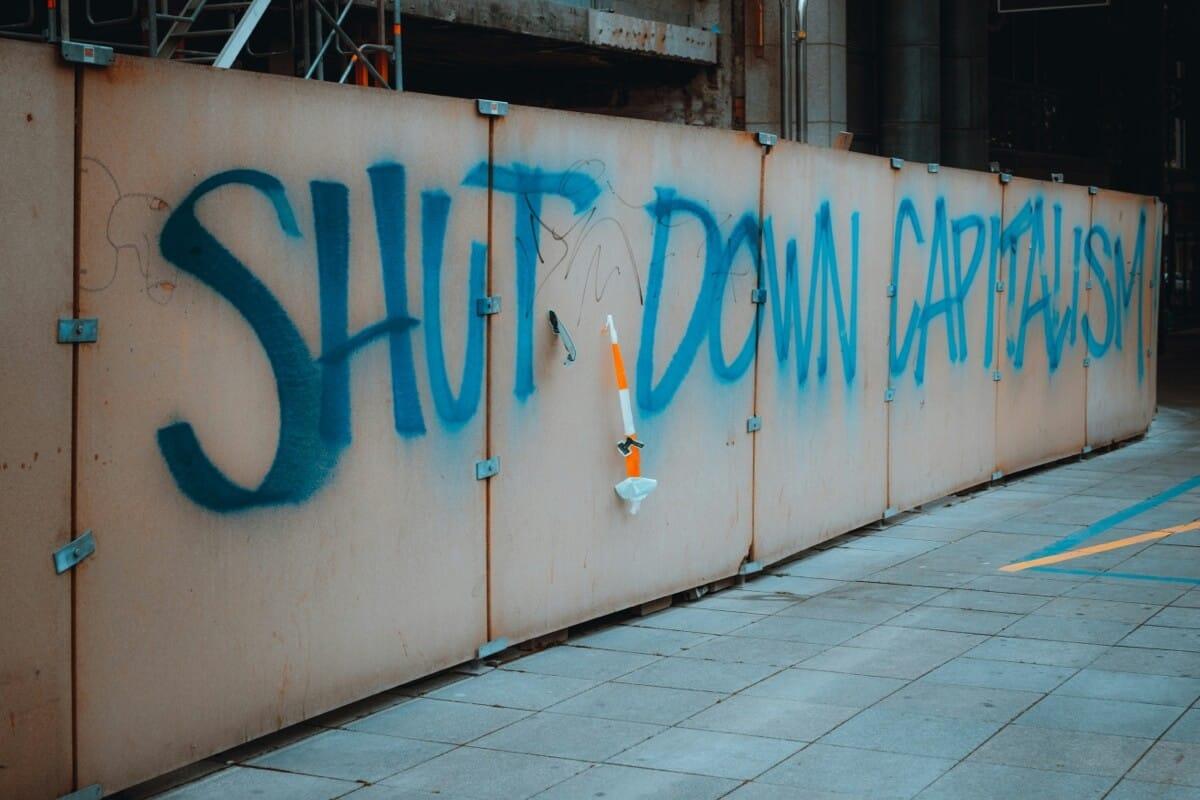We’re gonna talk a fair bit about happiness today. Because while, on the face of it, flow has a lot to do with productivity, it has more to do with where happiness comes from, and how we can find more of it.
Research shows us that after your basic needs are met, there’s a limit to how happy more money will make you. But take what I’m saying with as many heaping helpings of salt as you see fit, and replace them with the words of Douglas Adams, from 1978.
This planet has – or had – a problem, which was this: most of the people living on it were unhappy for pretty much of the time. Many solutions were suggested for this problem, but most of these were largely concerned with the movements of small, green pieces of paper. Which is odd because, on the whole, it wasn’t the small green pieces of paper that were unhappy.
I think many of us are unhappy for a good deal of the time. A dozen eggs costs the GDP of a small island nation, and everyone – at least on the Internet – seems to hate everyone else. The world is run by supervillains from Saturday morning cartoons, and any superheroes we do have are locked in squabbles among themselves… or fighting over who gets top billing in their inevitable film franchise.
So we look to TV, to short-form video, to alcohol and fast-food to give us a lift or a moment’s respite. We distract ourselves, numb ourselves, and do everything we can to avoid sitting with our feelings.
Ugh, feelings.
And OK, I’m laying it on a bit thick maybe, but a lot of us – me included – just want to flop on the sofa and do something mindless after work.
And why is that? Because work isn’t giving us what we need. It’s either stressing us out so much we need an escape, or it’s so beneath us that we’re wondering if this is all there is. And this is where flow comes in.
Mihaly Csikszentmihalyi was a Hungarian psychologist and academic. He was born in 1934 and died in 2021. Flow: the Psychology of Optimal Experience was published in 1990, and is still considered, 35 years later, to be definitive on the subject.
We’ll get into the connection between happiness and flow in a bit, but first off, let’s define what flow actually is.
What is flow?

Imagine a seesaw, with boredom on the left-hand side and anxiety on the right. Now think about a job you need to get done today, and place it somewhere on that seesaw.
If that job’s too difficult, it makes us feel anxious or stressed. Too much of that, and you end your day curled up in front of Netflix with a glass of wine, just to recharge.
If the job’s too easy, we get bored. Too much boredom and we end up seeking quick rewards like scrolling through TikTok or ingesting industrial amounts of chocolate.
What Csikszentmihalyi found is that there’s a spot on the seesaw that’s just far enough to the right to make it interesting, without upsetting the balance too much. In other words, where the work is challenging enough that the brain absorbs itself in it, but not so difficult that it throws us off the seesaw.
Now, what flow looks like for you will be different for what it looks like for me I get into flow when I’m coding (yeah bro, I code), and when I’m playing something more intricate on the piano.
I’m sure you can remember being in the zone yourself at some point. Maybe it was playing football or tennis, maybe it was fixing a broken piece of tech.
Flow puts us in a state of ecstasy, in the original Greek sense of the word, meaning “outside oneself”. It really is like being in another world sometimes, and the crash back into reality can sometimes feel a bit violent.
That need, or at the very least desire for escapism isn’t new, by the way. It’s not a symptom of modern life being more complex and busy. Ancient civilisations built temples and took drugs to experience other worlds, other ways of being, other states of consciousness if you like.
Some of them were looking for God, but what they found is that what we now call flow can transport us somehow outside of time… and what’s more, it feels amazing. And while this might all sound a bit fluffy, it’s grounded in something we can easily understand.
This is a TED talk Csikszentmihalyi gave back in 2004, when they were a bit more chill. So, our capacity to perceive something is very similar to how we think about broadband speed. We can process around 110 bits of data a second. But me speaking to you is eating up around 60 of those bits.
How many bits you can process – or how fast your broadband – will vary from person to person. Most of us can’t hear more than two people speak at the same time because all our bandwidth is eaten up.
I’m going to send this episode to my mum so she can finally understand why both my dad and I get incredibly flustered when we’re on the phone to a relative and my mother is, in her most helpful way, reminding us to ask the other person how their cousin is while we’re also arranging next week’s pub crawl.
So rather than imagining me on the phone to my uncle, let’s think about someone at the piano, composing a new piece of music and all the way in the zone. Most of his bandwidth is taken up with the notes he’s playing and the wider arc of the piece.
He doesn’t have enough attention left over to monitor how his body feels or his problems at home. He can’t feel even that his hungry or tired. His body disappears his identity disappears from his consciousness. Because he doesn’t have enough attention – like none of us do – to really do well, something that requires a lot of concentration and at the same time to feel that he exists. So existence temporarily suspended.
Although Csikszentmihalyi studied artists and scientists as part of his research, flow isn’t confined to knowledge work. You can see people in flow when they’re cooking a meal with multiple pots and pans, or doing intricate carpentry, or solving a tricky puzzle.
That works if you’re an in-home cook or a woodworker or a professional escape room player. (No I don’t think those exist either; I just needed a third thing.) It works because part of what makes flow happen is intrinsic motivation. Meaning, you do the thing because you love doing it.
And that’s where happiness comes in. When we spend less time stressed-out and more time focusing on challenging tasks, we balance out the seesaw in our own brains.
Here’s a TED talk by the author of Dopamine Nation, which I urge you to check out if you’re into this sort of thing… you’ll find links to everything at undo.fm/flow.
So, contrary to what you might think, we’re not designed to live our whole lives in a state of total bliss. Nor, of course, are we designed to always be miserable, despite what Russian literature or French cinema would have us believe.
Our brains want us to be somewhere in the middle, and so given that most of us have to work in order to put food on the table, our long-term mental health is improved by doing work that puts us in that zone where we’re challenged, but not overburdened.
Now, I ain’t no psychiatrist, I ain’t no doctor with degrees. Seriously, I’m just a podcaster, standing in front of a listener, asking you to like and subscribe because it really helps the algorithm or something.
If you have a particular relationship with your brain chemistry that, for example, involves medication, some of this won’t work. I think most of us have dysfunctional relationships with dopamine, but there are plenty who need a bit more help in getting things regulated. So take as much of this as works for you, and discard the rest.
Alright, so given we spend around 8 hours doing stuff that doesn’t give us intrinsic motivation and doesn’t induce flow, where can we find it? How can we get into that flow state so we’re not completely shagged out at the end of the day?
Get Undo in your inbox
New episodes come out every Monday. The easiest way to make sure you don’t miss one is to pop in your email address below.
We won't sell your data or abuse your inbox, ever.
The Hitchhiker’s Guide to Productivity

Earlier on I played a clip from the Hitchhiker’s Guide to the Galaxy. It’s a weird thing but, I think Douglas Adams had a lot of useful things to say about psychology and mental health than was realised at the time.
One of his observations in the second series – yes, Hitchhiker’s was a radio show before it was a book or a TV show – was that people would start bringing in artificial constraints into their everyday work, to counter the advances in medicine. And there’s something to the idea.
It feels like most of our jobs these days involves sending and receiving emails. So what if you set yourself some challenges throughout the day, to help move the task along the seesaw from boring to interesting?
Why not set a goal to answer 10 emails in an hour, or to communicate on instant messenger without using the letter N? What if you had to sneak the titles of Nickelback songs into your next presentation without getting caught, or write a status report in the time it takes to microwave your lunch?
Yeah these are daft, and I bet you could come up with better ideas, but the point is to introduce a challenge. Something your brain can lock onto, that feels satisfying to accomplish, but ideally won’t get you into trouble.
You can use this stuff outside of work, too. Why not set a time limit on doing the dishes, or finishing the vacuuming before the end of your next podcast episode?
Another thing you can do is set clear goals, or keep the gamification element going. Last week we talked about the pomodoro technique, where you divide moments of focus up into 25 minute increments, separated by 5 minutes of rest. For each pomodoro you complete, give yourself 5 points. Then award yourself a point for every 5 minutes of rest you get.
Set out two or three clear and achievable objectives for the day – like solving a particular client’s problem or prepping for a meeting – and make sure the stuff you’re doing is aligned with that goal. Shower yourself with points when you achieve them, and notice how your brain rewards you with a feeling of satisfaction.
I’ve started a daybook, where I list the three things I want to do today, fill in the pomodori I complete, jot down any thoughts that pop up while I’m in focus mode, and keep track of good experiences throughout the day, along with those I learned from. Keeping it going and reviewing it at the end of the day gives me another little boost, like the neurochemical equivalent of an attaboy. It all adds up.
You can get into flow outside of productivity, too. Crosswords are really great for this, as I think are some video games, especially racing games or endless runners. But flow isn’t the same as losing time on the toilet swiping through Tinder profiles. There has to be an element of challenge involved, otherwise it’s just like inhaling a bowl of mac ‘n cheese – enjoyable in the short-term, but full of calories your body can’t do anything good with.

One of the core tenets of this podcast – and which will become part of the inevitable drinking game that follows – is that productivity is a capitalist agenda, and that most of the advice exists to make us churn out more work under the illusion we have autonomy. So the ideas I’m sharing with you here are not about how to feed more work into the machine, but to keep your brain on an even keel so that when you get home, you can spend part of your off-hours doing something creative you love.
You might have noticed the approaches I’ve talked about are based on intrinsic rewards, not extrinsic ones. Rather than rewarding yourself with a peanut after achieving a task like a good little monkey, the key is to set your brain challenges it can solve. Your brain likes to solve problems, and solving them comes with their own reward.
OK it’s not the pupil-widening explosive sugar rush you get from a tub of Ben & Jerry’s, but because it doesn’t give you the high, it won’t give you the low that comes from your brain trying to find that all-important equilibrium.
Now, I don’t know about you, but pretty much any time I hear people talk about happiness, I think “Yeah that’s cute and everything, but who’s got time? I’ve got a bunch of deadlines, I’m just trying to make ends meet, I’ve got friends, family, coworkers, and somehow my neighbours to manage”. Hence the above clip.
And I completely get it. I wonder though, if we’re thinking about happiness in terms of the American Dream, like it’s something we have to chase down with a star-spangled shotgun. Happiness is not the credits at the end of the film, where the characters amble off into the sunset to Walk of Life by Dire Straits.
Depending on the decade you were coming up, happiness might be somewhere between laughable luxury or fanciful nonsense. So let’s look at it another way. Instead of thinking about happiness as an eternal beach holiday where the drinks are free and your only concern is which seaside café to explore next, think instead about answering the question “How are you?” with the reply “Good, actually. Yeah, really good”.
Does that mean everything’s perfect? Of course not. Life’s going to hurl shit in our direction from time to time. There’ll be death and sadness and soaring interest rates and high cholesterol and your favourite TV show will get cancelled.
But when you spend as much of your productive time in flow as possible, you get better at turning into the skid, rather than looking for quick escape routes.
And if you have a day job, the more mental energy you have at the end of the day, the more of it you can channel into a creative practice that could lead to something greater, or at the very least, lets you spend more time in flow.
Go deeper
Flow: The Psychology of Optimal ExperiencePsychologist Mihaly Csikszentmihalyi's investigations o…